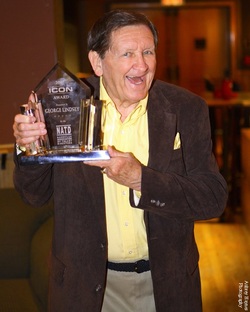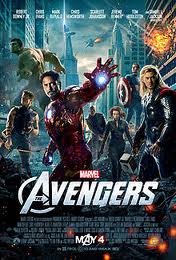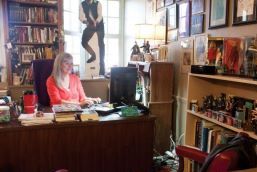
The past six years of my life have been made richer, and certainly funnier, from knowing George “Goober” Lindsey, who passed away early this morning. The star of “The Andy Griffith Show” and “Hee Haw,” as well as numerous important appearances on “M*A*S*H,” “Gunsmoke,” “The Alfred Hitchcock Hour,” and with roles in “Ensign Pulver” “The Aristocats,” and “Robin Hood,” among others, was a 1952 graduate of the University of North Alabama, where I teach. 15 years ago, he helped found an international film festival at UNA, and six years ago, I was asked to co-chair that event.
I was terrified the first time I met with George in my new capacity as co-chair of a major event which bore his name. My close friends know that beneath a well-rehearsed mask of confidence, I am afraid of my own shadow. Imagine my sitting down to try to gain this TV and film legend’s confidence. Apparently my mask was a little rigid that day, because I learned a few years later that George took to calling me “Sarge” after that meeting. Thankfully, he didn’t insist that I be fired, and we developed a lovely friendship over the years. I only wish, before he left us, that I had grown that funny bone George liked to say I was lacking.
Heaven is now blessed with George, who will be saying “hey” to friends who passed before him. The rest of us will feel the absence of George, his sweet voice saying “hey,” his knock-knock jokes, and his wonderful heart for a very long time. RIP friend.
I was terrified the first time I met with George in my new capacity as co-chair of a major event which bore his name. My close friends know that beneath a well-rehearsed mask of confidence, I am afraid of my own shadow. Imagine my sitting down to try to gain this TV and film legend’s confidence. Apparently my mask was a little rigid that day, because I learned a few years later that George took to calling me “Sarge” after that meeting. Thankfully, he didn’t insist that I be fired, and we developed a lovely friendship over the years. I only wish, before he left us, that I had grown that funny bone George liked to say I was lacking.
Heaven is now blessed with George, who will be saying “hey” to friends who passed before him. The rest of us will feel the absence of George, his sweet voice saying “hey,” his knock-knock jokes, and his wonderful heart for a very long time. RIP friend.


 RSS Feed
RSS Feed